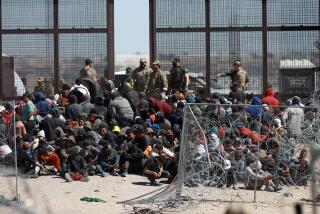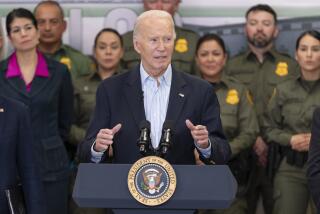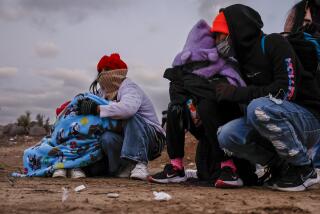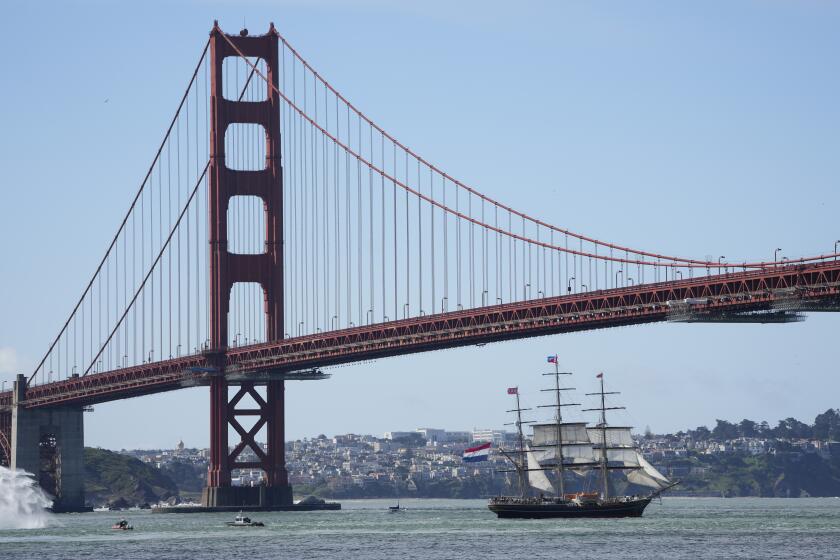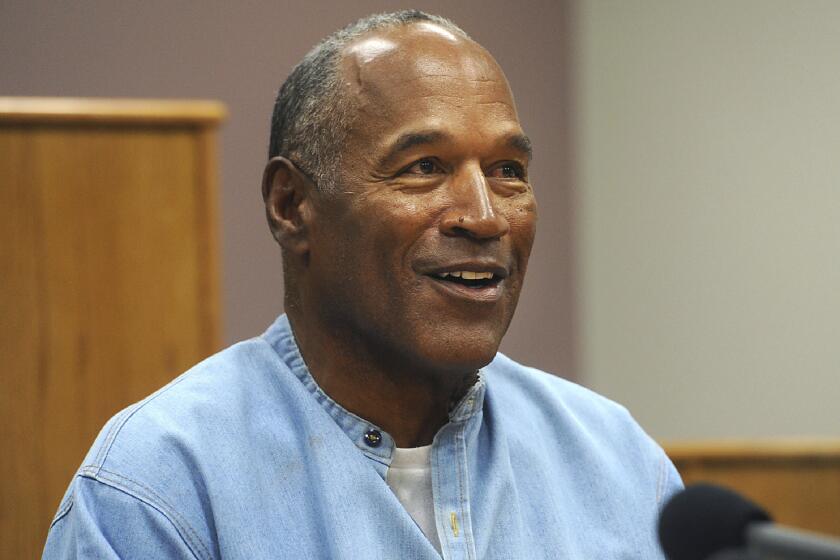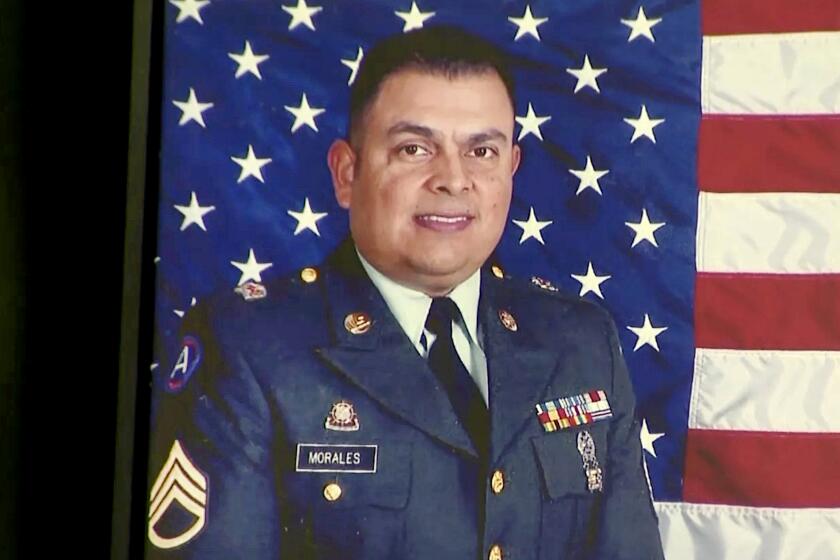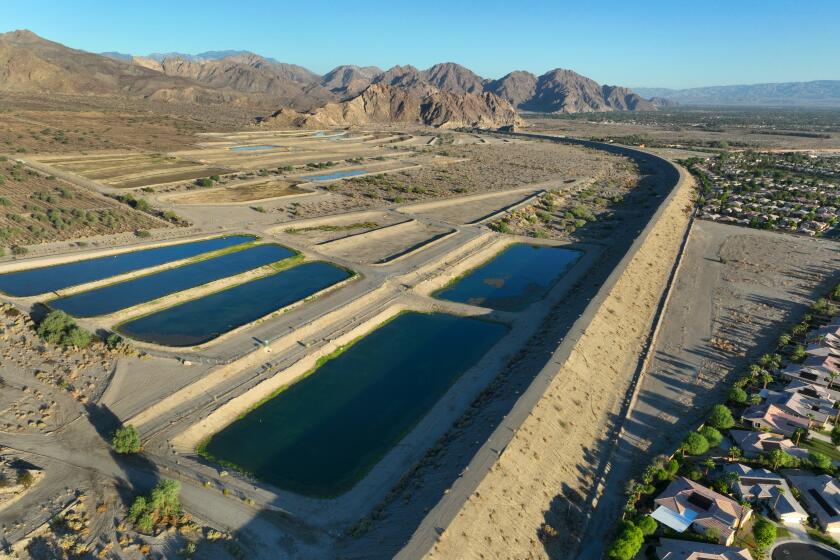Just north of the U.S.-Mexico border, ‘Little Dog,’ ‘Weasel’ and other militia members keep an eye out for migrants
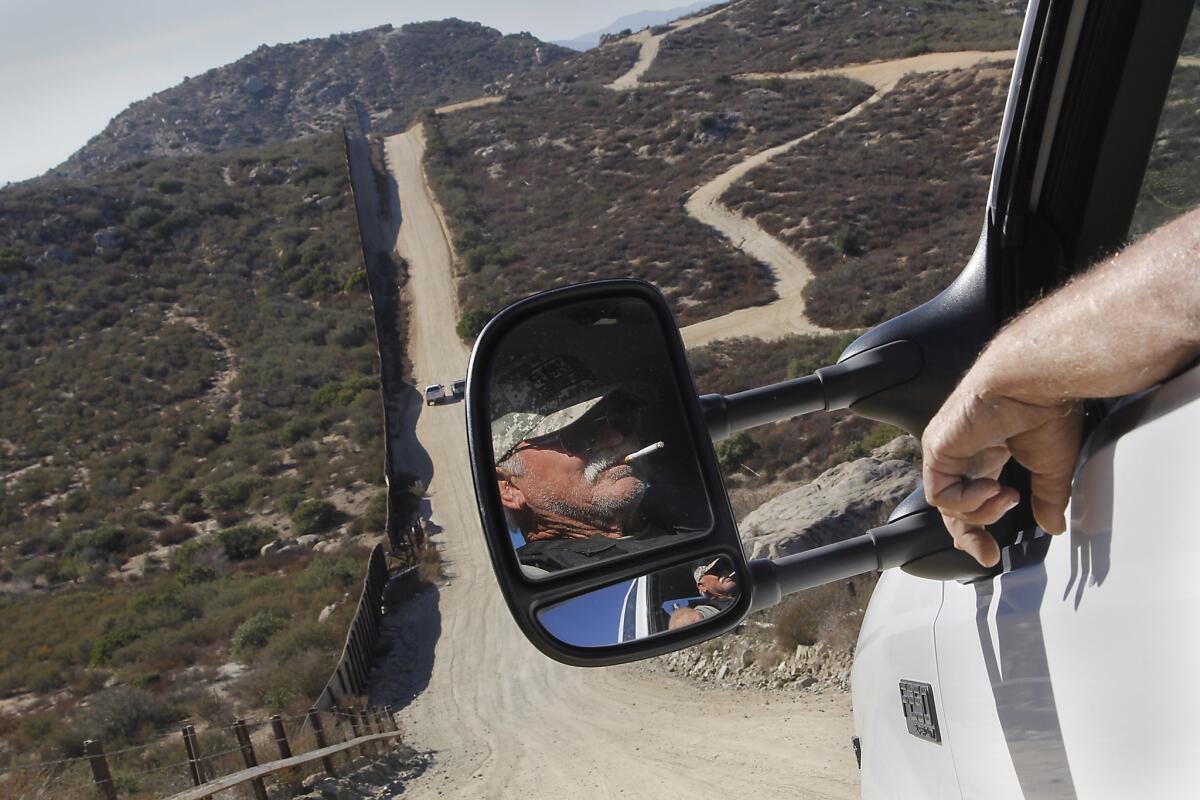
Robert Crooks is up before sunrise on a hill he calls “Patriot Point,” walkie-talkie in hand and loaded semiautomatic handgun holstered on his right hip.
To protect himself, he wears a vest padded with National Geographic magazines — including one celebrating great white sharks.
Directly in front of him is a border wall made of steel landing mats left over from the Vietnam War. Just a few hundred feet from the Mexican border, Crooks scans the landscape for any sign of an immigrant trying to cross into the United States.
A Las Vegas resident, Crooks heads the Mountain Minutemen. Along with other militia members in Texas, his group has been gearing up as thousands of migrants from Central America steadily make their way to the U.S. border to ask for asylum.
The presence of the militias is small, coordinated, and has a muse in President Trump. On Friday, Trump called the caravan a “big con.” Last month, he tweeted that “very bad thugs” and gang members were among the migrants.
“This is an invasion of our Country and our Military is waiting for you!” the president proclaimed.
Along the Southwest border, almost 6,000 troops have been deployed, with about 1,500 of them in California. According to Defense Secretary James N. Mattis, the troops will stay at the border through early December unless the Department of Homeland Security requests an extension.
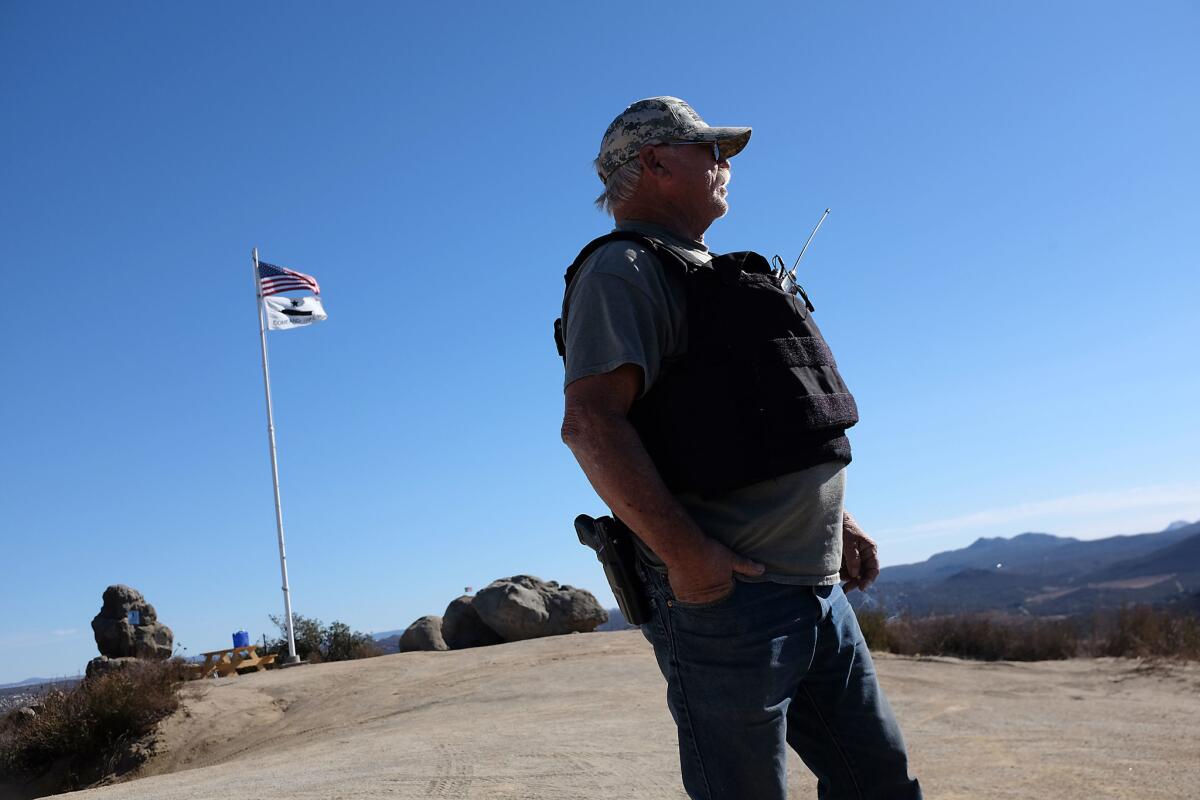
Crooks, a 68-year-old retired commercial fisherman wearing a camouflage Trump hat, said the military presence was not enough and that the entire border should be shut down.
“This is a national emergency,” he said.
Central American migrants have recounted acts of kindness from Mexicans throughout their journey north. In Tijuana, however, they have encountered an attitude among some Mexicans not unlike that expressed by Crooks. They too speak in terms of an invasion.
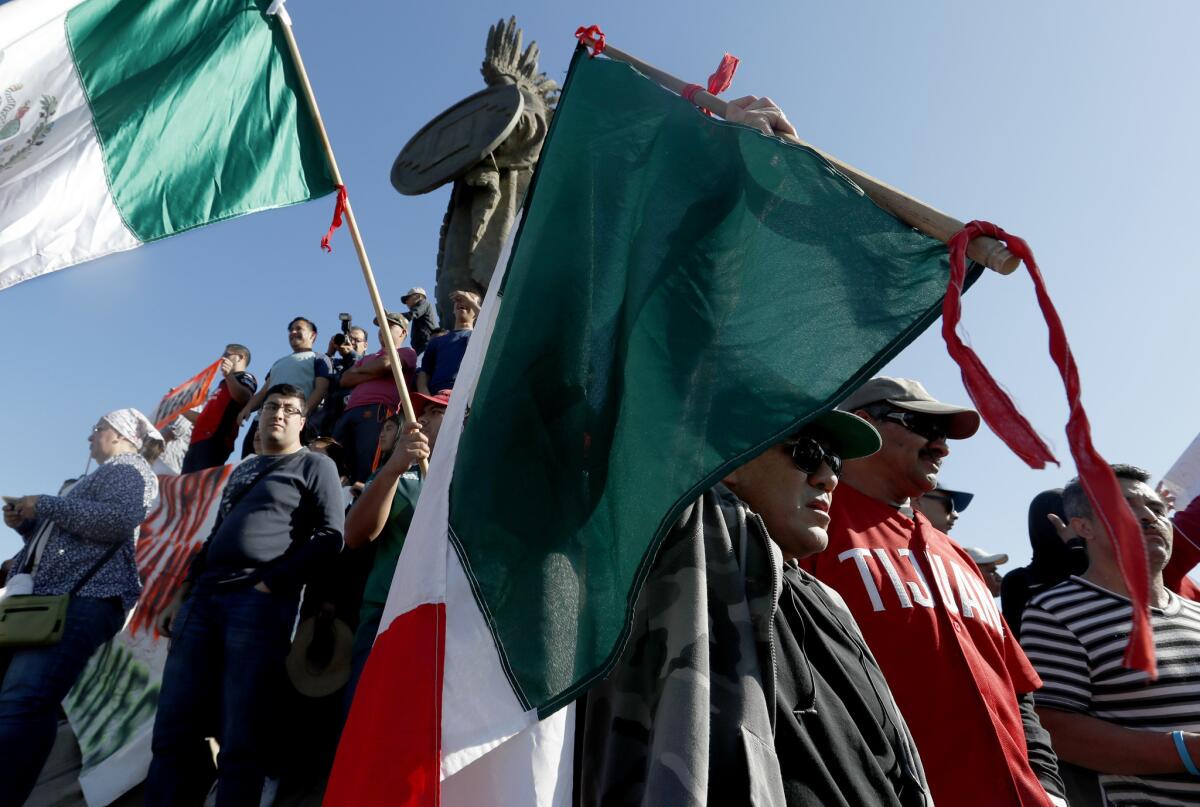
Antonio Cimota, 36, leads one of the groups protesting against the migrants in Tijuana, despite having parents who defied border officials when they entered Mexico: He crossed illegally into the U.S. as a child and lived here before returning to Mexico seven years ago.
He said he understands the circumstances that drive people to flee their country, but says: “As the president of the United States, Trump has every right to protect his borders. Just as we should be protecting ours.”
Crooks said he gets why some Tijuana residents have reacted with hostility toward the Central American migrants.
“That’s their town, their community,” he said. “I think you’re going to see an uprising of a nationalist movement in Mexico.”
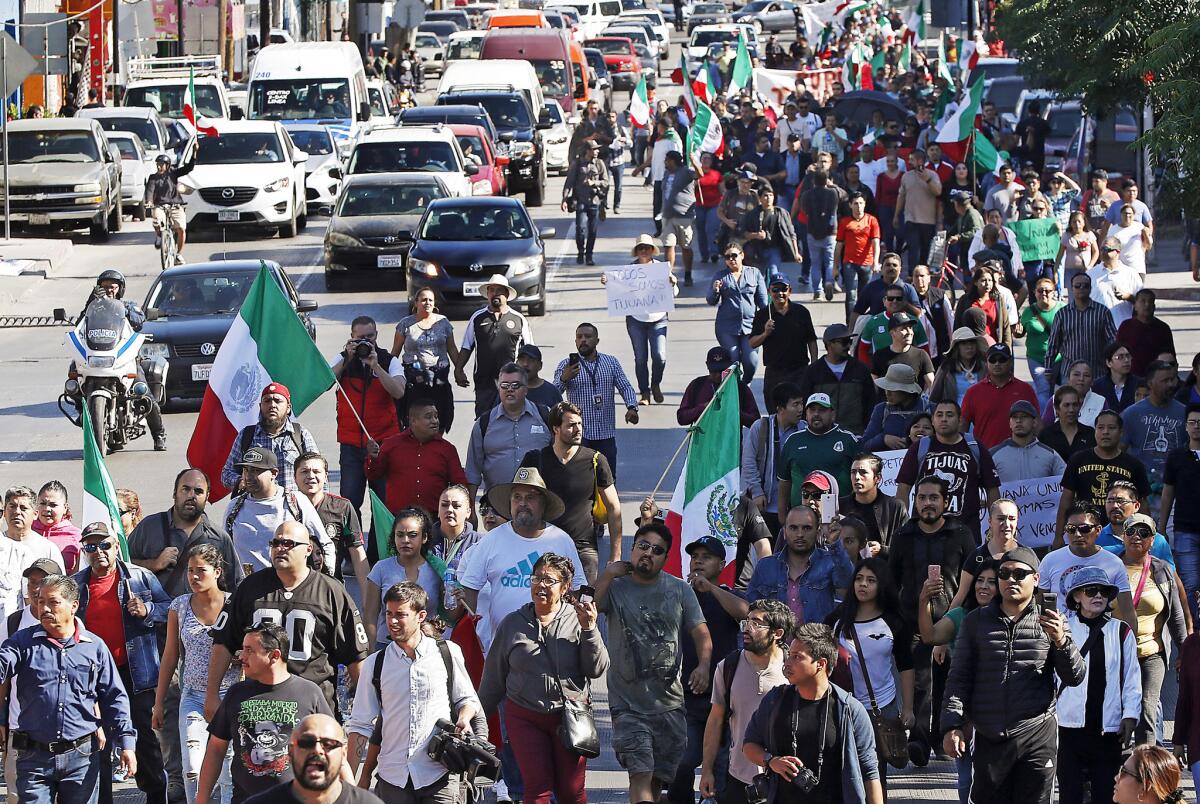
On Monday, U.S. Customs and Border Protection temporarily closed northbound lanes at the San Ysidro Port of Entry, which links San Diego and Tijuana, out of concern that some migrants might try to illegally make a run across the border.
The Trump administration has warned that applicants will face long waits in detention and have little chance of gaining legal residence. Earlier this month, the administration introduced measures to deny asylum to anyone who enters the country illegally.
By Friday, advocates were urging migrants to think beyond the U.S. and consider relocating to Canada or Europe, or even remaining in Mexico.
Considering the significant lines at border entry points, Crooks doesn’t expect many of them to stay in Tijuana long.
He thinks they’ll be forced to go east to escape federal authorities. There are gaps in the border wall near the small town of Campo, and he and other members of his militia believe migrants are likely to try to use them to cross. He said he watched border agents detain four migrants on Friday.
So for the last two weeks, he and a handful of associates have been camping out of their vehicles. His white Ford F-250 pickup has “MINUTE MAN” emblazoned on the doors in black lettering. They consider themselves a savvy neighborhood watch.
Farther east, Harry Hughes, 55, of the U.S. Border Guard militia in Arizona said he’s not anticipating caravan migrants will attempt crossing the border 65 miles south of his home. Terrain in that rural stretch of the desert is particularly rough, said Hughes, who is also a leader of the neo-Nazi National Socialist Movement.
Shannon McGauley, 54, leads the Texas Minutemen. The bail bond agent from the Dallas suburbs left the border on Monday after three weeks.
He said a dozen members of his group have been patrolling an area just east of McAllen, Texas, and claimed to have 100 volunteers on standby. He plans to be back next week.
McGauley believes the attention in Tijuana is just a diversion and that migrants will soon begin attempting to cross the border in Texas.
“We don’t really want the full force until we’re sure when the caravan is going to arrive,” he said.
The presence of militia is not supported by the Defense Department, according to planning documents obtained by Newsweek. Intelligence officials estimated 200 “unregulated armed militia members” were operating along the Southwest border earlier this month. They also reported incidents of unregulated militias stealing National Guard equipment during deployments.
“They operate under the guise of citizen patrols” supporting Customs and Border Protection, primarily between points of entry, according to the documents obtained by the publication.
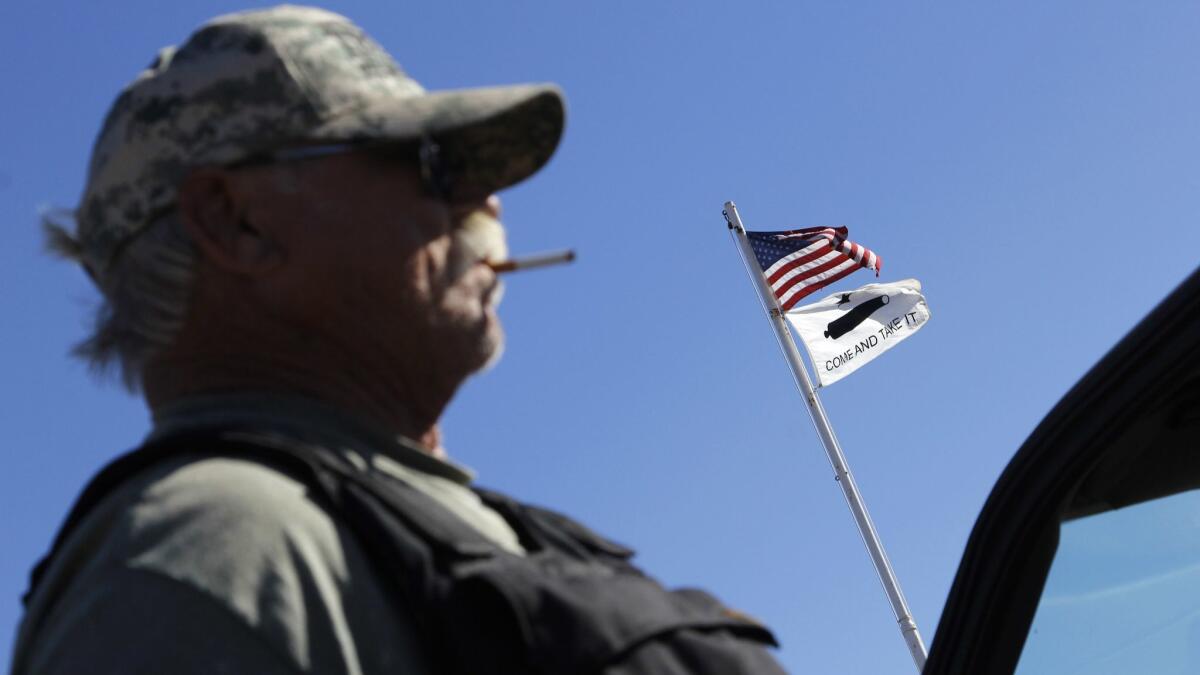
An American flag flies atop a tall flagpole on the hill Crooks stands on. Right underneath it is the Gonzales flag, named for the first battle of the Texas Revolution against Mexican rule. The flag is white, with a black star and a cannon with the words: “Come and take it.”
The Minutemen have nicknames for each other and speak in code. Crooks is known as “Little Dog” for the way he keeps on the trail of migrants until border agents arrive to detain them. His associates didn’t want to be interviewed, saying they were afraid they could lose their regular jobs.
Several men were positioned atop other hills along the one-mile radius they patrol. They have dubbed the hills Donut Hole, Zoners and Couch Trail.
A call came in on Crooks’ walkie-talkie.
“Little Dog, this is Weasel, do you copy?”
“Yo, Weasel, what’s happening?”
“You’ve got an Omaha coming your way. I can see him.”
A black Border Patrol helicopter flew overhead. Crooks raised his hand to his temple in a salute.
“The Border Patrol does fantastic work,” he said. “There’s just not enough of them. We’re getting hammered.”
Crooks said he thinks the migrants shouldn’t turn down the Mexican government’s offer for refuge.
A member of the Minutemen since 2005, Crooks insists he has been shot at, attacked and even poisoned while guarding his country from people he calls “cockroaches.”
“That’s the pit of evil,” he said, looking just across the border. “I’ve heard blood-curdling screams from over there. Heroin, cocaine, bodies, child slavery, human trafficking. And it’s been like this for a long time.”
Crooks said his wife wants him home for Thanksgiving but that if activity starts to pick up, he’s not leaving. And if he does, he’ll be right back in no time.
Times staff writer Patrick McDonnell in Tijuana contributed to this report.
andrea.castillo@latimes.com | Twitter: @andreamcastillo
More to Read
Start your day right
Sign up for Essential California for news, features and recommendations from the L.A. Times and beyond in your inbox six days a week.
You may occasionally receive promotional content from the Los Angeles Times.
